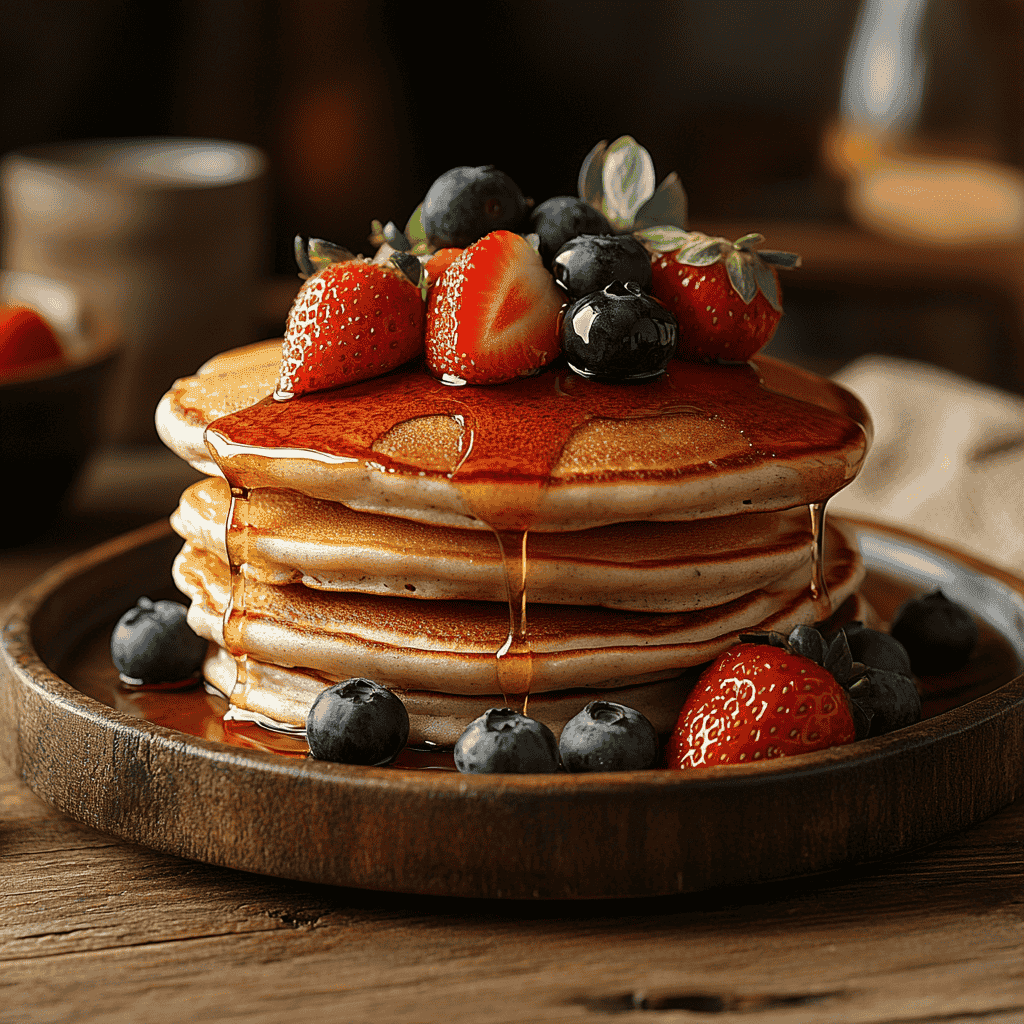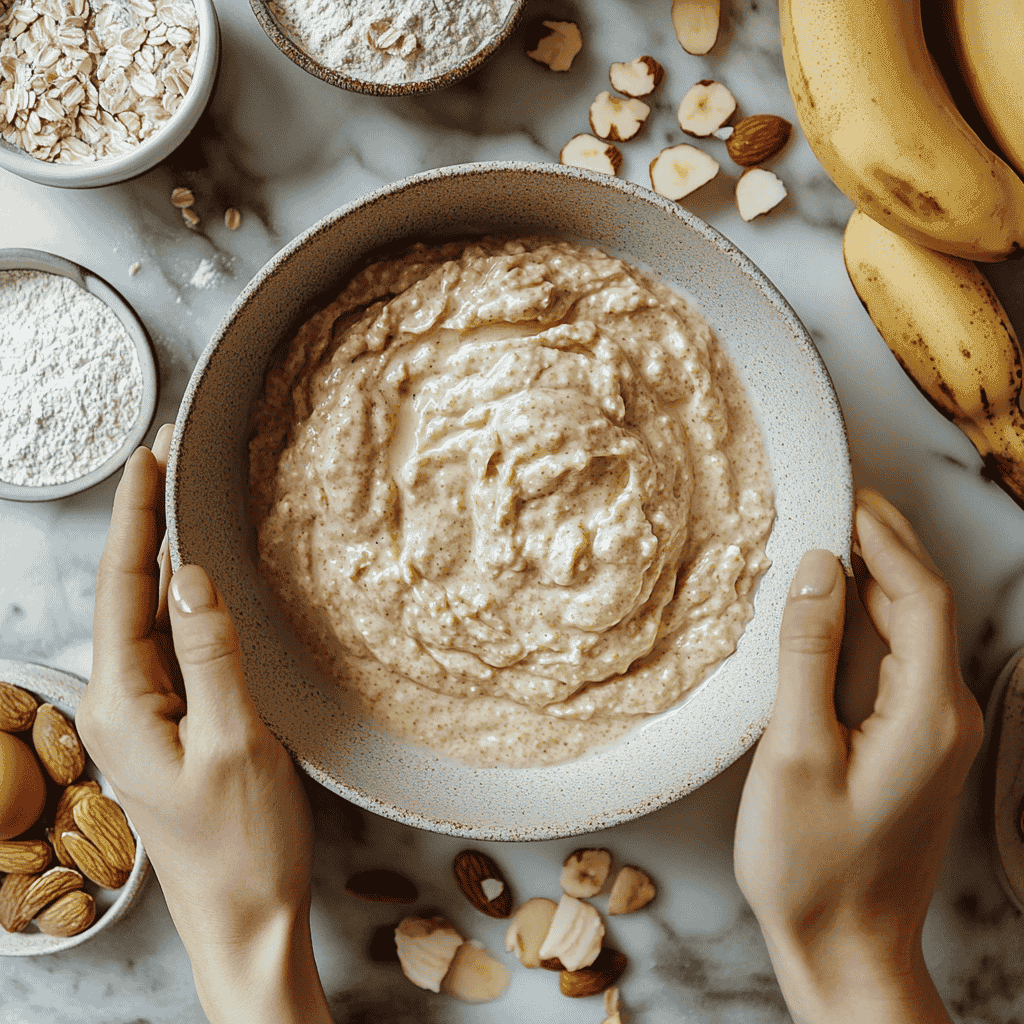Are protein pancakes healthy? Many people wonder whether this trendy breakfast option lives up to the hype. Have you ever woken up craving pancakes but wished they could be a healthier start to your day? Protein pancakes—a popular choice for fitness enthusiasts and breakfast lovers alike—aim to provide a nutritious, protein-packed alternative. But the question lingers: are they genuinely as healthy as they sound, or is it just clever marketing? Let’s dig deeper to uncover the truth about protein pancakes.
Table of Contents

Are Protein Pancakes Healthy? What You Need to Know
At their core, protein pancakes are a twist on traditional pancakes, aimed at increasing the protein content while keeping the indulgent pancake experience intact. They’re crafted to cater to those who prioritize fitness, weight management, or simply want a filling, nutritious breakfast.
Ingredients Used in Protein Pancakes
The base ingredients in protein pancakes differ from the usual flour, eggs, and milk combo. They typically include:
- Protein Powder: Whey, casein, or plant-based powders like pea or rice protein.
- Alternative Flours: Almond flour, oat flour, or even coconut flour are common to boost fiber and nutrients.
- Eggs or Egg Whites: Essential for binding and additional protein.
- Milk Alternatives: Almond milk, soy milk, or regular milk to adjust consistency.
- Add-ins: Ingredients like chia seeds, flaxseeds, or bananas often make an appearance for extra nutrients.
These swaps aim to make the pancakes more nutrient-dense while keeping them fluffy and delicious.
How Do They Differ from Regular Pancakes?
Regular pancakes are known for being carb-heavy, typically made from refined flour and sugar. While they’re undoubtedly comforting, they lack the nutrients and satiety protein pancakes can offer. Protein pancakes are higher in protein, often lower in carbs, and may even include healthy fats, making them a more balanced option for sustained energy.
Nutritional Benefits of Protein Pancakes
Now that you know what’s in them, let’s explore why people are turning to these nutrient-packed pancakes.
High Protein Content for Muscle Repair
Protein is crucial for muscle repair and growth, making protein pancakes an excellent post-workout breakfast. Whether you’re lifting weights or practicing yoga, this meal provides the building blocks your muscles need to recover.
Low Carb Options for Weight Management
Low-carb diets have gained popularity for their role in weight loss and blood sugar regulation. Protein pancakes often use almond flour or coconut flour, which are naturally lower in carbs than traditional flours. This helps keep you full without the sugar spikes.
“Protein pancakes keep me energized and satisfied all morning—unlike regular pancakes that leave me craving a snack in an hour!”
Rich in Essential Nutrients
Thanks to the variety of alternative ingredients used, protein pancakes can be packed with vitamins and minerals. For instance, almond flour is rich in vitamin E, while flaxseeds add omega-3 fatty acids.
Common Misconceptions About Protein Pancakes
Despite their growing popularity, protein pancakes aren’t immune to criticism. Let’s debunk some common myths.
Are They Only for Athletes?
Absolutely not! While athletes and fitness enthusiasts may have popularized them, anyone can enjoy protein pancakes. They’re a great way to add variety to your diet and sneak in more protein.
Do All Protein Pancakes Taste Bad?
One of the biggest misconceptions is that anything labeled “healthy” must taste bland. This couldn’t be further from the truth. With the right recipe or product, protein pancakes can be just as flavorful as their traditional counterparts. Think cinnamon, vanilla, or even chocolate-flavored options!
Potential Drawbacks of Protein Pancakes
While protein pancakes have their perks, they’re not without potential downsides. It’s important to be mindful of these to make informed choices.
Over-reliance on Processed Ingredients
Many store-bought protein pancake mixes rely on processed protein powders and additives to boost protein content. While convenient, these may contain artificial flavors, sweeteners, or preservatives that can diminish their health appeal.
For example, some brands include high amounts of sodium or sugar to improve taste and texture, negating the benefits of a “healthy” breakfast.
High-Calorie Variants
Not all protein pancakes are low in calories. If you’re not careful with the toppings—like adding heaps of peanut butter, syrup, or chocolate chips—you could end up consuming more calories than you would with regular pancakes. Even homemade versions can be calorie-dense if made with ingredients like almond butter or full-fat milk.
“Just because it says ‘protein’ doesn’t make it calorie-free. Keep your portion sizes in check!”
Digestive Issues with Certain Proteins
Protein powders, especially whey-based ones, can cause digestive discomfort for some people. If you’re lactose intolerant or sensitive to certain proteins, these pancakes may lead to bloating, gas, or other unpleasant symptoms. Opting for plant-based protein powders can be a good alternative.
Tips for Choosing Healthy Protein Pancakes
To ensure you’re getting the healthiest version of protein pancakes, here are some practical tips:
Reading Nutrition Labels Carefully
When buying pre-made mixes, don’t just rely on the marketing claims on the front. Flip the package and check the label. Look for:
- Protein Content: Aim for at least 10-15 grams of protein per serving.
- Added Sugars: Choose products with minimal or no added sugars.
- Ingredient List: Avoid mixes with too many artificial additives.
Opting for Homemade Recipes
Homemade protein pancakes are the best way to control what goes into your meal. By using fresh, whole ingredients, you can customize your pancakes to suit your nutritional needs and taste preferences.

How to Make Healthy Protein Pancakes at Home
Ready to whip up your own protein pancakes? It’s easier than you think and allows you to skip unnecessary additives.
Essential Ingredients for Homemade Protein Pancakes
Here’s a basic list of ingredients to get you started:
- Protein Powder (30g): Choose a flavor you enjoy—vanilla or chocolate work well.
- Oats (50g): Blend into a fine powder for added fiber.
- Eggs or Egg Whites (2): Helps bind the batter and adds protein.
- Banana (1 medium): For natural sweetness and moisture.
- Milk of Choice (100ml): Adjust the amount for the desired batter consistency.
- Baking Powder (1 tsp): To make your pancakes fluffy.
Step-by-Step Recipe Guide
- Blend Ingredients: Combine all ingredients in a blender and blend until smooth.
- Heat a Pan: Preheat a non-stick pan over medium heat and lightly grease with oil or cooking spray.
- Cook Pancakes: Pour a ladle of batter into the pan. Cook until bubbles appear, then flip and cook the other side.
- Serve: Top with fresh fruit, yogurt, or a drizzle of honey for a nutritious finish.
Pro Tip: Want fluffier pancakes? Let the batter sit for 5 minutes before cooking to allow the baking powder to activate.
Adding Variations to Suit Your Taste
Protein pancakes are incredibly versatile! Try these fun twists:
- Berry Burst: Add blueberries or raspberries to the batter for an antioxidant boost.
- Choco-Lover: Mix in cocoa powder or sprinkle dark chocolate chips on top.
- Nutty Delight: Add crushed nuts or a dollop of almond butter for healthy fats.
Comparing Store-Bought vs. Homemade Protein Pancakes
Not sure whether to buy a mix or make your pancakes from scratch? Let’s compare the two options to help you decide.
Cost Analysis
Homemade protein pancakes are usually more cost-effective, especially if you already have staples like oats, eggs, and protein powder. Store-bought mixes can be convenient but often come with a higher price tag due to branding and packaging.
For example, a bag of protein pancake mix might cost $10–15, while homemade ingredients could yield multiple servings for the same price.
Nutritional Value Comparison
When it comes to nutrition, homemade pancakes take the win. Why? You control every ingredient. Store-bought mixes may include added sugars, artificial flavors, and stabilizers. Homemade versions let you keep it clean and nutrient-rich.
“Making your own pancakes means you know exactly what’s on your plate—no hidden surprises!”
Convenience Factor
Store-bought mixes shine when it comes to convenience. They save time and require minimal prep, making them a good option for busy mornings. However, if you enjoy cooking or want the healthiest version possible, taking a few extra minutes to make them from scratch is worth it.
Frequently Asked Questions About Protein Pancakes
Are Protein Pancakes Suitable for Kids?
Yes, protein pancakes can be a great breakfast for kids! Just ensure the recipe or mix doesn’t include artificial sweeteners, which might not be suitable for children. You can also customize the protein content by incorporating ingredients like fruits or yogurt.
Pro Tip: For another kid-friendly breakfast option, check out this moist pumpkin bread recipe that’s both nutritious and delicious.
Can I Eat Them Every Day?
While protein pancakes are a healthier choice, variety is important in any diet. Eating them daily might lead to boredom or over-reliance on processed protein powders. Rotate them with other nutritious breakfasts, like oatmeal or smoothies, to maintain balance.
For more breakfast inspiration, try these cranberry orange muffins or the fun and savory breakfast pizza rolls recipe.
“Think of protein pancakes as one tool in your breakfast toolbox—not the only option!”
Conclusion: Are Protein Pancakes Really Healthy?
So, are protein pancakes really healthy? The answer lies in how you prepare and consume them. When made with wholesome ingredients and enjoyed in moderation, they’re a fantastic way to boost your protein intake, support muscle recovery, and enjoy a filling breakfast. However, like any food, they can lose their health appeal if overloaded with sugary toppings or artificial ingredients.
To sum it up, protein pancakes can be as healthy as you make them. Whether you prefer the ease of store-bought mixes or the control of homemade recipes, the key is to prioritize clean, nutrient-dense ingredients.
Call to Action: Try a Healthy Recipe Today! 🥞💪
Why not give protein pancakes a try? Start with the homemade recipe shared above, or experiment with your favorite ingredients to create a version that’s uniquely yours. Your taste buds—and your body—will thank you!
